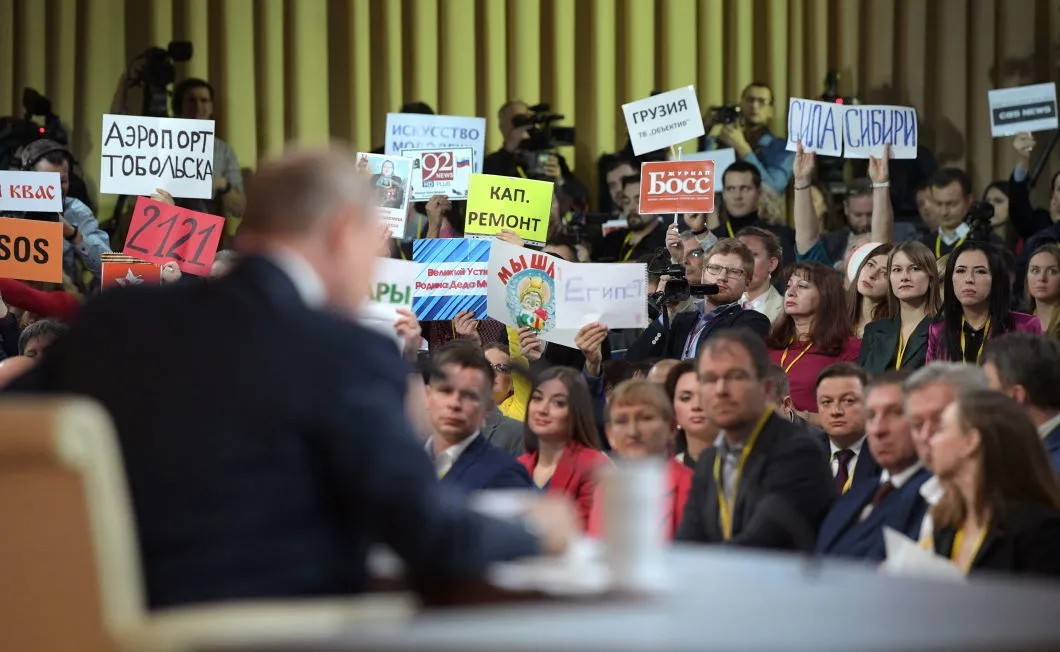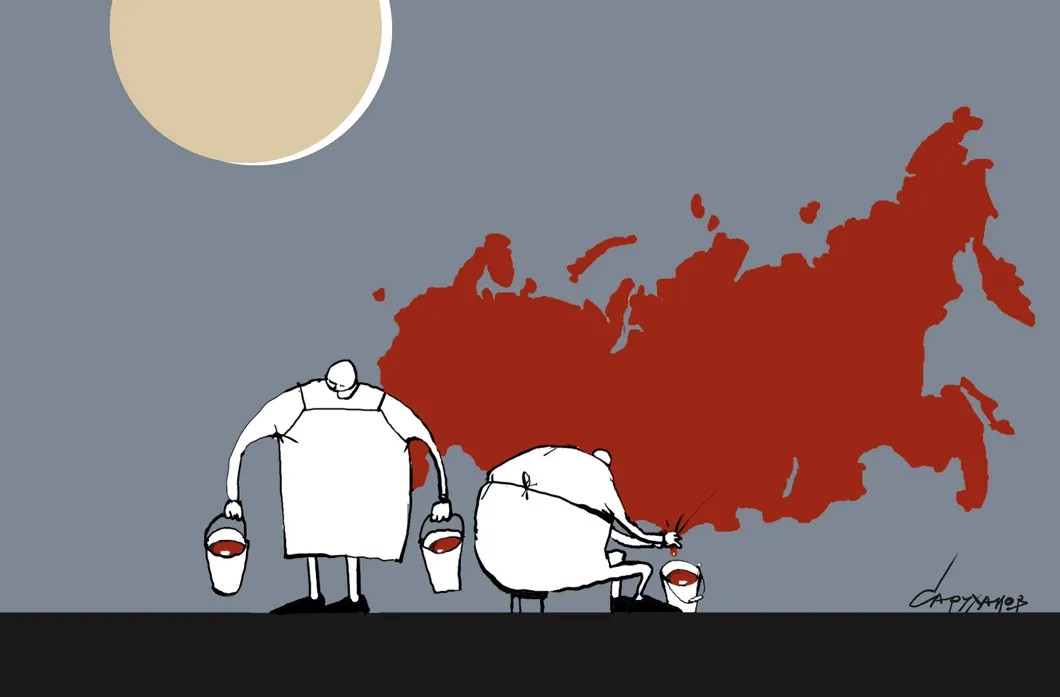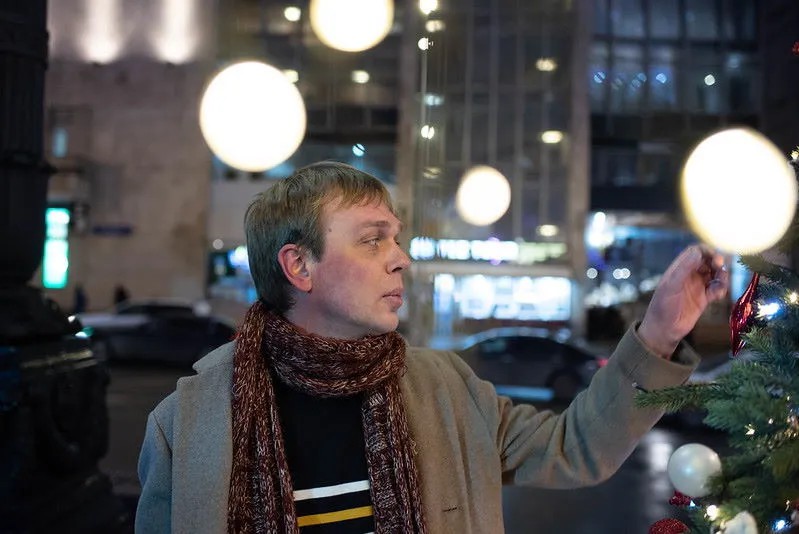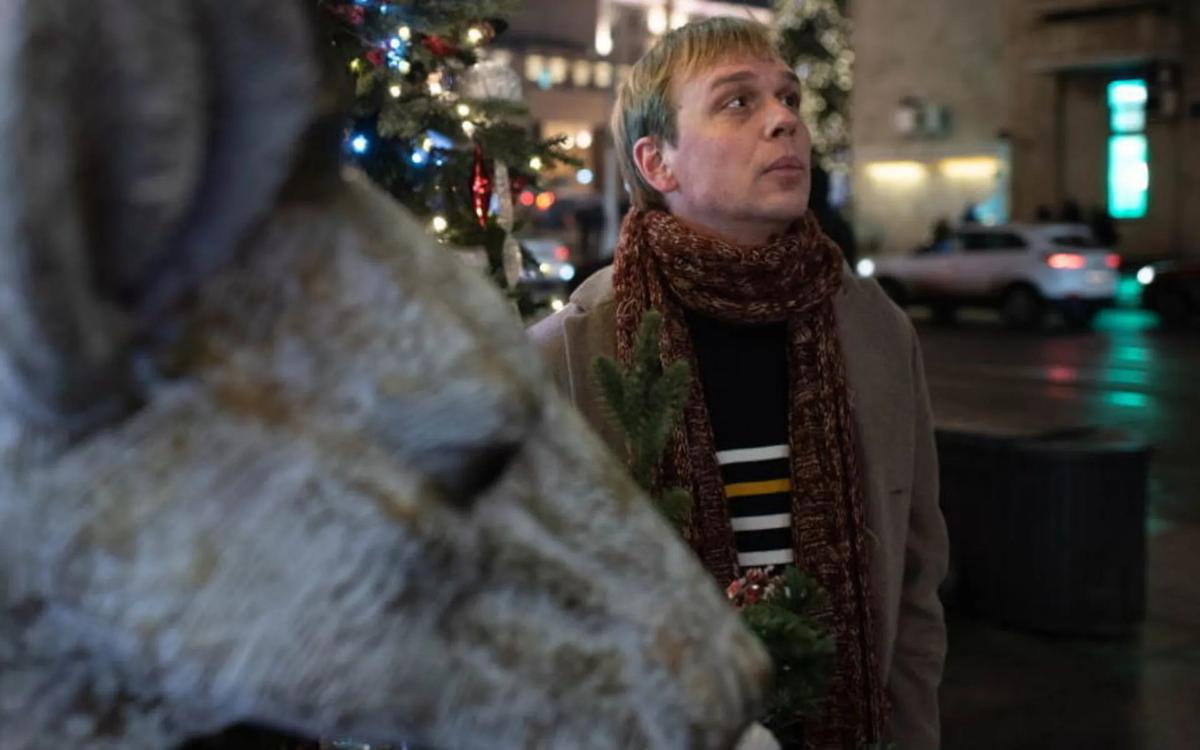This Week’s Highlights
The 2024 transfer of power dominates the conversation at Putin’s annual press conference, an economist analyzes the Russian economy’s last decade, an interview with Russia’s “journalist of the year” Ivan Golunov and what makes the “Moscow Case” a turning point for Russia.
Want to get the full story? Click the links below for full-length articles in Russian.
New feature! Russia, Explained Audio Briefing. Also available on Apple Podcasts and Google Podcasts!
Putin’s Upcoming Power Transfer, Explained

It’s been weeks since the annual press conference of the Russian president, but the country is still trying to decode Putin’s comments about the impending transfer of power at the end of his final term in 2024. Throughout the press conference, the idea that the transfer of power had already begun – and that it’s being implemented with Putin’s indirect involvement – was voiced again and again. Meanwhile, Novaya Gazeta’s special correspondent Ilya Azar sat through the entire four-hour press conference holding a sign that read “Freedom for all political prisoners” – he wasn’t allowed to ask any questions.
Putin’s Take.In response to speculation about 2024, Putin said that he is not against changing the Russian Constitution so that the term “in a row” is removed from the phrase about the two-term presidential limit, which ensures (for now) that the head of state changes at least once every 12 years. This can be seen as a temperature check on public opinion, argues Novaya Gazeta columnist Kirill Martynov. “They’re saying, why couldn’t we further improve the Constitution, since we’re already correcting [this] term. Couldn’t we introduce, for example, rule over the State Council?” In other words, the authorities are still brainstorming ways of keeping Putin in power – and he’s weighing in on the plan, as well.
Television Authoritarianism.While over six million television viewers tuned in to Russian President’s annual press conference on December 19th, Martynov also points out that many people seem tired of its exhibitionist format. The online response – totaling 45 thousand “dislikes” versus 10 thousand “likes” – foreshadowed the reaction to the President’s New Year’s address, which resulted in state channels hiding the “like” counters on their sites. “So ends the great era when the country combined television authoritarianism with digital freedom of speech,” Martynov writes. “Only one of these two systems could survive.”
Read Kirill Martynov’s take on the President’s press conferencehere.
A ‘Lost Decade’ for the Russian Economy, Explained

“At first glance, the Russian economy is approaching the end of 2019 without much success,” writes Novaya Gazeta economist, Dmitry Prokofiev. “Even official data from Rosstat[the Federal State Statistics Service] and the Central Bank show that the results – in terms of growth and income – are poor.” In dollar terms, Russian GDP has not grown at all over the last 10 years. While in 2008 Russia made up 3 percent of the world economy, now it is no more than 2 percent – and it is set to be even less going forward.
The Rich Get Richer.The authorities see the main positive outcomes of the decade in terms of other figures; like the fact that the Russian upper class is getting richer faster. Today, Russia is just behind the United States in terms of its number of official billionaires – with one percent of the country’s wealthiest citizens controlling nearly 60 percent of its material and financial assets. Meanwhile, there has also been the steady growth of the Russian stock market, which has brought skillful investors 73 percent yields since 2014.
‘Captured’ Economy.Prokofiev argues that the modern Russian economy was shaped by the decisions made after the 2008 financial crisis. Rather than handing bankrupt Russian corporations over to foreign investors, the authorities chose to prop-up local oligarchs. As a result, the Russian economy has entered the new decade with a different structure based on the coexistence of the ruling elites and a few selected billionaires. In turn, the economic policy that exists today is not conducive to growth, because the real goal is the enrichment of the state apparatus, Prokofiev says. “In the coming years, the essence of economic policy will be the transfer of property and power to the children of ‘state representatives’,” he argues.
Read Dmitry Prokofiev’s analysis of the Russian economy’s last decadehere
Поддержите
нашу работу!
Нажимая кнопку «Стать соучастником»,
я принимаю условия и подтверждаю свое гражданство РФ
Если у вас есть вопросы, пишите [email protected] или звоните:
+7 (929) 612-03-68
“Bring this story to an end”: An Interview with Investigative Journalist Ivan Golunov

When police detained investigative journalist Ivan Golunov in Moscow on June 6, 2019, he was taken to the police department and beaten. Law enforcement then searched his apartment, where they allegedly “discovered” a particularly large quantity of drugs – and he was suddenly facing up to 18 years in prison. But the fabricated case unintentionally sparked an unprecedented level of solidarity – not only among Russian journalists but also among ordinary citizens rallying together against the lawlessness of the police. The result? The case was thrown out and Ivan Golunov became Russia’s journalist of the year.
Golunov Weighs In.Here’s what Golunov had to say about how his life has changed since his release.
- On becoming an “ambassador”: “The situation the police created aroused public interest in pressure on freedom of speech in Russia. Now [people] ask me: ‘come here and tells us about freedom of speech in Russia, how journalists work in authoritarian countries,’ I’m probably a kind of ambassador.”
- On the investigation: “Our last meeting with the investigator took place [at the end of August]…after that I haven’t had any contact with the investigation…Recently they don’t even pick up the phone.”
- On his detention: “I am a journalist. I conduct investigations concerning corruption. It seems to me that the situation I fell into has been an assessment of the quality of my work; if the protagonists of my investigations tried to resolve the ‘problem’ in this way.”
- On continuing his work: “My life has changed significantly. That is, I cannot sit, concentrate and work on some theme for an hour. Because something will happen during this hour…Someone will need an interview from me, someone will need me to speak out on something, and I will also receive a few letters…Stupidly, I cannot do what I want to do – for example, my work.”
- On justifying people’s trust in him: “I will not justify people’s trust by changing my specialization or changing my profession and becoming a human rights defender. This is not very close to me internally. And, in fact, I don’t think that I could do this better than what I am doing now.”
Read Novaya Gazeta’s full interview with Ivan Golunovhere.
The “Moscow Case” as a Turning Point for Russia
Pro-democracy protests in the capital, the controversial City Duma elections, and the “Moscow Case,” were among the most important events for Russians in 2019 – topped only by the Ukrainian elections and the fire at the Notre Dame Cathedral in Paris. And while events abroad may have been distractions from the state of affairs at home, the “Moscow Case” showed that all is not well in Russia.
The Public Frustration is on the Rise.“We thought that political discontent was the lot of the educated and that the Kremlin’s power rested on the slavish support of the uneducated majority,” writes Novaya Gazetajournalist Anastasia Mironova. But the “Moscow Case,” whose 31 defendants come from all walks of Russian society, seems to have proven this theory wrong. “This political process debunked a number of typical modern myths about the country’s population, its moods, and demands for changes,” Mironova explains. The “Moscow Case” captured Russia’s attention, because “It showed us that the country has changed.” As such, it was not just the event of the year in Russia, it also marked a turning point – revealing the scale of disorder in the country and popular dissatisfaction with this reality.
“The protests can no longer be called the domain of Moscow intellectuals. Masons, repairmen, and merchandisers want change in [this] country. Because they are living badly and they don’t like it.”– Anastasia Mironova, Novaya Gazetajournalist.
Read Anastasia Mironova’s take on what makes the “Moscow Case” a turning point for Russiahere.
Our International Reporting Highlights
- This week’s top story from Novaya Gazetawas military expert Pavel Felgenhauer’s analysis of the assassination of Iran’s top general, Qasem Soleimani. While Felgenhauer draws a comparison with the 1914 assassination of Habsburg Archduke Franz Ferdinand and the start of World War I, he also points out that although Russian interests in the Middle East imply that the countdown to a bigger conflict “seems to be on,” Moscow is trying to stay away from the crisis.
- Novaya Gazeta’steam has also recently returned from Hong Kong with a special report on the local pro-democracy uprising, investigating the creative tactics used among street protestors and the inspiration they are drawing from other movements worldwide, like the 2014 Maidan Revolution in Ukraine.
Thanks for reading! To keep up with Novaya Gazeta’s reporting throughout the week, you can follow us on Facebook, Twitter, Instagram and Telegram. Our video content is available on Youtube and don’t forget to visit our website for the latest stories in Russian. Until next time!
— The Novaya Gazeta Newsletter Team
Поддержите
нашу работу!
Нажимая кнопку «Стать соучастником»,
я принимаю условия и подтверждаю свое гражданство РФ
Если у вас есть вопросы, пишите [email protected] или звоните:
+7 (929) 612-03-68
